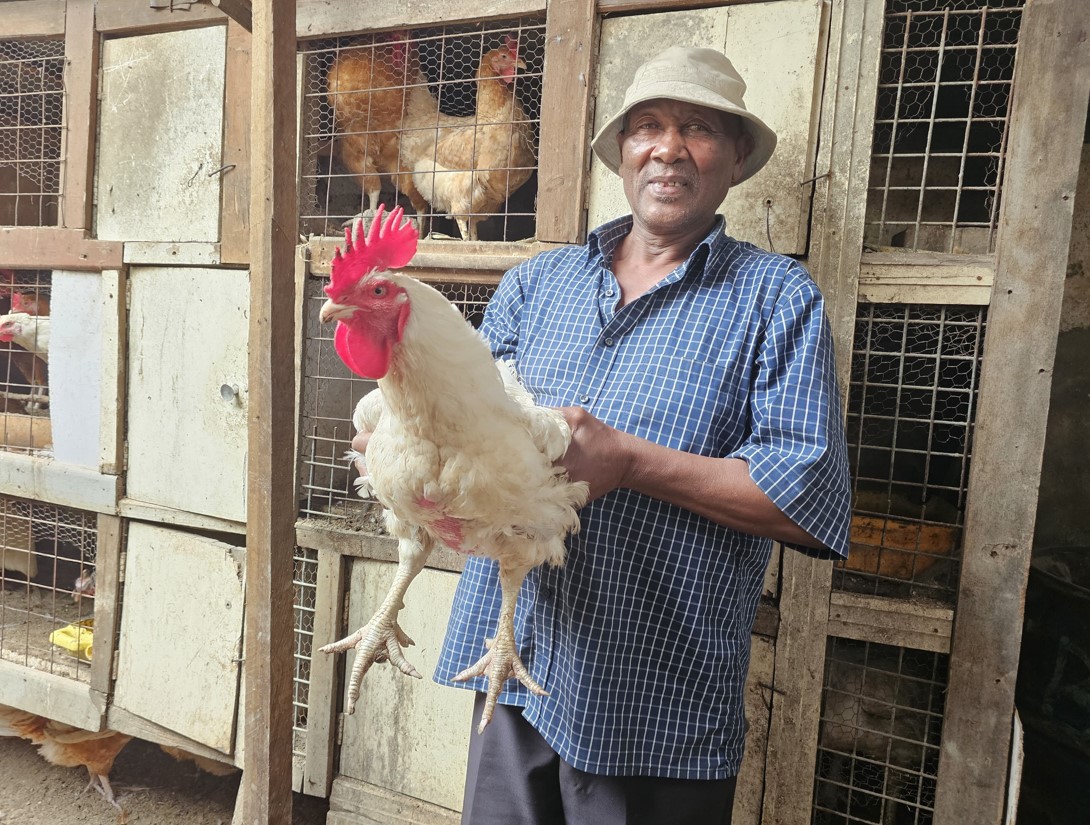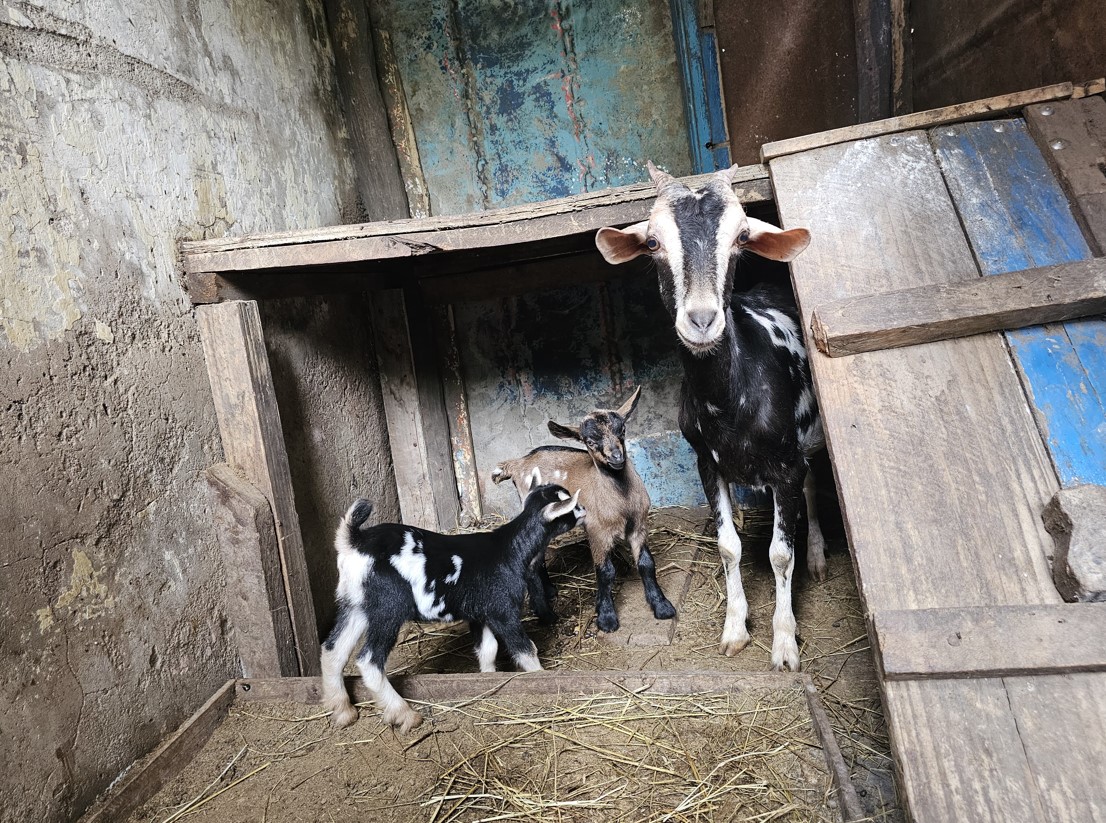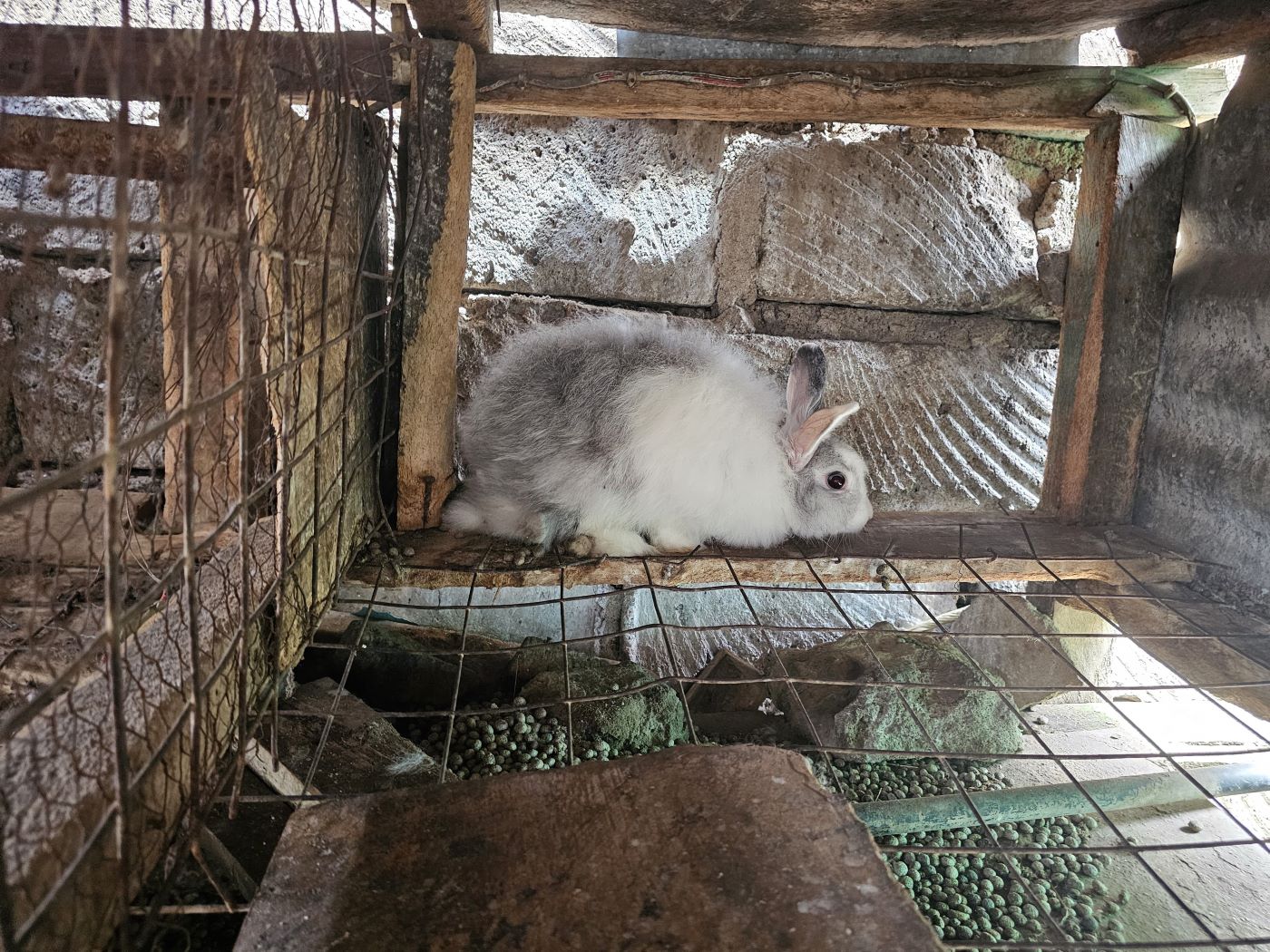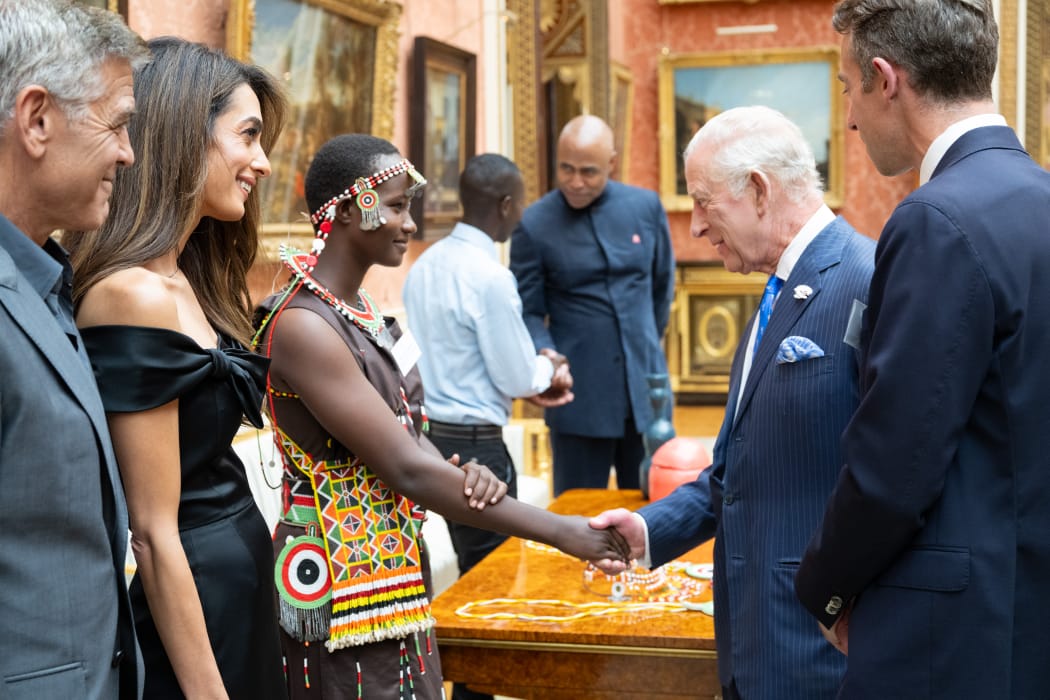Joel Mwangi: The urban farmer feeding the Eastleigh community

Most of his customers are his neighbours who prefer buying eggs directly from his farm due to their affordability compared to shop prices.
Eastleigh is well known for its many thriving businesses, with its over 80 malls attracting customers from Kenya and beyond.
However, it is not all about just about trade and business.
More To Read
- Vibrant atmosphere as Eastleigh comes alive as Ramadan draws to a close
- Exploring new horizons: What upcountry visitors say about shopping at Eastleigh
- Dreams deferred: The loan barrier for Eastleigh traders facing economic hurdles
- Eastleigh businesses staring at losses from uncovered risks as many shun insurance
- How homeless Ethiopian refugee rose to become successful hotelier in Eastleigh
- 10th Street: Eastleigh's ‘little Ethiopia’ where beverage lovers enjoy special coffee
Joel Kamiri Mwangi, a 63-year-old farmer who has carved his niche in this fast-paced neighbourhood of Nairobi.
Mwangi's journey goes back to 1972 when he came to Eastleigh as a child having moved from Hamza, Makadara.
Back then, Eastleigh was much different as there were no tall buildings and the malls that now define it.
Then, Eastleigh was primarily inhabited by the Indian community and was largely a residential estate.
According to Mwangi, there was very little presence of the Somali community by then.
He went to Eastleigh Airport Primary School before he moved to Murang’a for his secondary school education. He then came back to Eastleigh.
"After completing my studies, I settled at Eastleigh's Second Street, where I started a small kiosk selling groceries," recalls Mwangi, reflecting on his humble beginnings.
He later ventured into the world of gaming and tried his luck on a PlayStation kiosk but that too ended due to eye problems.
"I developed eye problems and could no longer continue with it, I decided to quit and look for something else," he said.
Small investment
It was then that he began farming. Mwangi first started with a small investment and purchased a few chickens and for several months thought he would settle for poultry farming.
He gradually expanded his farm, incorporating ducks, goats, rabbits, and even quails. He bought the goat from his home county of Murang’a for Sh20,000.
 Some of the goats at Joel Mwangi's farm in Eastleigh. (Photo: Abdirahman Khalif)
Some of the goats at Joel Mwangi's farm in Eastleigh. (Photo: Abdirahman Khalif)
"I used to milk my goats and drink the milk, it was sufficient, then I added rabbits to the farm and grew," he noted with a smile, recounting the beginning of his agricultural enterprise.
Today, Mwangi's farm is a testament to his hard work and dedication. With over 60 chickens, including ten large roosters some weighing over 7 kilograms, six different breeds of rabbits, eight quails, and several ducks, his plot is a lively hub of agricultural activity.
He also purchases huge quantities of unripe bananas from neighbouring areas including Murang’a, which he stores in designated rooms for ripening before selling them to various markets across Eastleigh.
The banana business is huge in Eastleigh as most Somalis traditionally love eating their food with bananas.
Not only has farming provided Mwangi with a livelihood, but it has also been instrumental in raising his four children. Two are already graduates with one already employed while the other two are still studying.
"One is a DJ, another one is a graduate, and the two others are still in school," shared Mwangi, highlighting the impact of his farm on his family's welfare.
Affordability
Most of his customers are his neighbours who prefer buying eggs directly from his farm due to their affordability compared to shop prices.
He sells an egg at Sh10 while in other shops, one egg goes at Sh15 at the least.
 Some of the chickens at Joel Mwangi's farm in Eastleigh. (Photo: Abdirahman Khalif)
Some of the chickens at Joel Mwangi's farm in Eastleigh. (Photo: Abdirahman Khalif)
The most expensive eggs are the quail eggs which are quite rare and are not found in Eastleigh. Due to their scarcity, Mwangi sells one quail egg at Sh200.
"Quail eggs are particularly sought after for their rarity," explains Mwangi, "I sell them for Sh200 each, attracting niche customers willing to pay a premium for quality."
His chickens, known for their size and quality, fetch prices ranging from Sh2,000 to Sh3,500 shillings, catering to both individual buyers and bulk purchasers.
The price of rabbits also varies depending on the variety and size. The most expensive one can go for as much as Sh1,500 while the average one can cost around Sh7,000.
Rabbit meat is becoming a delicacy in Eastleigh and is mostly enjoyed in selected restaurants.
 A rabbit at Joel Mwangi's farm in Eastleigh. (Photo: Abdirahman Khalif)
A rabbit at Joel Mwangi's farm in Eastleigh. (Photo: Abdirahman Khalif)
However, it is not all success. Due to variations in demand, particularly for chickens, he sometimes goes months without making a sale. This is due to him only keeping native breed which takes time to grow.
He does not allow his chickens to roam around freely, they are mostly confined in cages and are fed grains daily.
On average, a native breed locally known as kienyeji chicken gives over 280 eggs per year.
Mwangi disclosed that maintaining the farm incurs expenses, with him spending approximately Sh8,000 monthly on chicken upkeep.
The top challenges facing Mwangi's farm include disease which sometimes can wipe out dozens of his chickens if not detected early.
Several of his poultry were lost due to the recent flooding experienced in Eastleigh and Nairobi.
Mwangi hopes his four children will inherit this farm and continue his legacy. He is a firm believer in farming as the gateway to poverty eradication.
"Farming is the sure way to kick out poverty, with little patience, it will sustain you for life," he told The Eastleigh Voice.
With land buyers on the rise in Eastleigh, Mwangi does not think he will ever sell the approximately one-acre plot that his farm sits on even if he was offered a premium price.
He intends to expand and add dairy cows to his farm soon.
Top Stories Today
Reader Comments
Trending















































